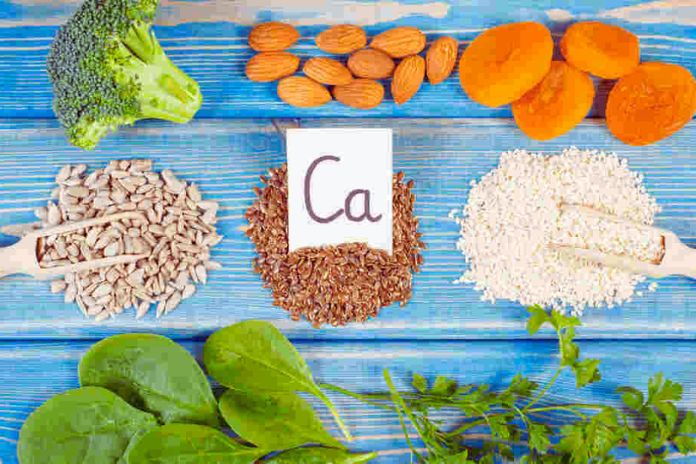To have a balanced diet, including foods rich in calcium is essential. From a very early age, we hear that calcium is important for maintaining strong bones and a healthy body. But after all, how does this nutrient influence our health?
Calcium is an essential mineral to improve the structure of teeth and bones. Therefore, he is a great ally in preventing osteoporosis. It also improves muscle strength and contraction, assisting blood clotting and maintaining blood pH balance.
Calcium is also required for nerve or synaptic impulse transmission and structural support of the skeleton.
When talking about calcium, the first food that comes to mind is milk. And this does not happen without reason. Milk and its derivatives contain a good amount of this mineral, but its consumption can also harm the body.
Some people suffer from milk allergy or lactose intolerance. However, even among those who do not have this restriction, its consumption is only sometimes indicated. After all, it has components that are not the best for our health.
Opting for a vegetarian and balanced diet brings many benefits to the body. The foods we choose to eat can ensure good health and prevent illness and discomfort.
A healthy diet is important not only to live long but also to live well.
Calcium-Rich Foods: Plant-Based Sources
Did you know that many foods do not contain milk and are a source of calcium? How about learning more about them and the benefits they can bring to your health?
Tofu
Tofu is derived from soybeans and is a good source of calcium, and it is also rich in protein, phosphorus, and magnesium. While 100 g of milk has 100 mg of calcium, 100 g of tofu has 159 mg of the nutrient. To complete, this food is also low calorie. In 100 g of tofu, we find only 70 kcal.
Broccoli
Raw broccoli is a great source of calcium. There are 400 mg of the nutrient in just 100 g of broccoli. However, when consumed in this way, it can reduce the efficiency of the thyroid, which can lead to hypothyroidism.
It is recommended that it be eaten, cooked or steamed. When cooked, it loses about 70% of the calcium; in steam, the loss is only 25%.
In addition to bringing a lot of calcium to the body, broccoli is also rich in other nutrients such as folic acid, antioxidants, fiber, and vitamins A and C.
Sesame Seed
Sesame seed is famous for being a good weight loss aid. This happens because of its high concentration of fibers, known to provide the feeling of satiety.
This seed is also a great source of calcium, with 400 mg of the mineral for every 100 g of food. Nutritionists also recommend regularizing intestinal transit and controlling blood sugar.
The unsaturated fats in sesame seeds are important for regulating cholesterol and triglyceride levels.
Soy
Soy has 90 mg of calcium for every 100 g. Its version in flour or milk has an even higher mineral concentration. When you consume 100 g of flour or soy milk, you put 280 mg of calcium into your body.
Chickpeas
Every 100 g of chickpeas contains 120 mg of calcium. Other advantages of this legume are the feeling of satiety, improved intestinal flow, and obtaining proteins.
Chia
Chia is a seed rich in Omega 3, protein, fiber, and iron. It is also a great source of calcium, containing 556 mg of the mineral per 100 g of food.
Consumption of chia also provides other advantages for the body. She protects the heart, fights cramps, assists in the functioning of the nervous system, and improves the immune system.
Oatmeal
Every 100 g of oats contains 300 mg of calcium. In addition to being rich in this mineral, oats also reduce LDL, which is bad cholesterol.
It can be used in different ways, being able to accompany fruits, be part of porridge or even be present in recipes for cakes and bread. Oats have the highest amount of fiber among cereals.
Flaxseed
Eating 100 g of flaxseed guarantees your body 200 mg of calcium. This food is also a source of omega-3, preventing cardiovascular diseases.
But beware, flaxseed is also known to be high in calories. It is important to consume with balance.
Almonds
Almonds can be consumed raw, with or without a shell, and are also the basis for preparing one of the tastiest vegetable kinds of milk. Every 100 g contains 137 mg of calcium.
How Much Calcium Should I Consume?
We already know how important calcium is for our body. But after all, how much of this mineral should we consume daily?
A baby up to 1-year-old needs more than 200 mg of calcium daily. Until age three, the mineral requirement goes to 700 mg per day.
While an average consumption of 1000 mg of calcium per day is required in childhood, in adolescence, the requirement for this nutrient is slightly higher. During this period, consuming an average of 1,300 mg of calcium every day is important.
An adult needs about 1000 mg of calcium daily. This need increases a little more after the age of 51. Men and women above this age range should consume between 1,200 mg and 1,300 mg of calcium.
However, although the body needs a good supply of calcium, it is important to remember that, like any other nutrient, calcium must be consumed in the right measure, without exaggeration.
Excess calcium in the body can lead to problems such as hypercalcemia. This happens when there is an excess of calcium in the blood, which can lead to kidney problems.
When calcium is consumed in excess, it can also lead to thyroid gland disorders, inflammatory diseases, and even cancers.
Also Read: Legumes: Properties, Benefits, And Contraindications

